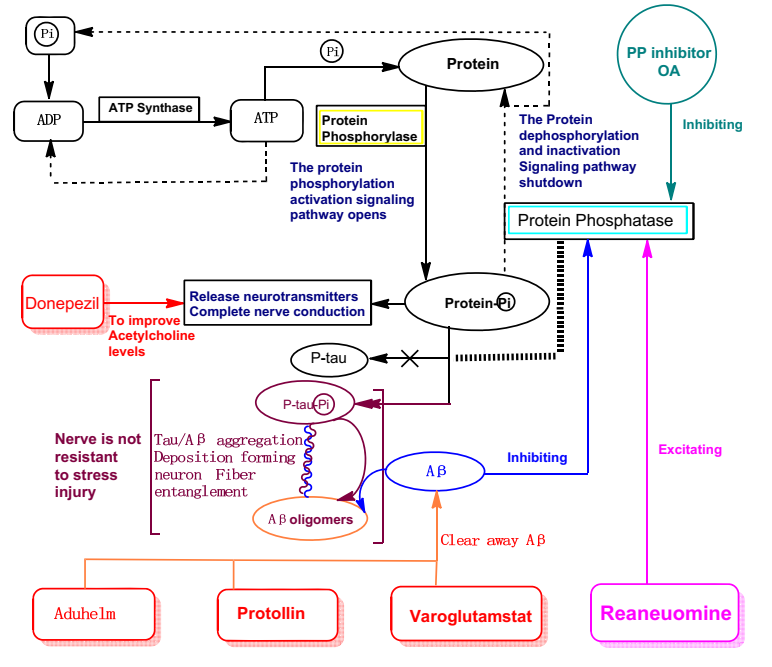![]() The Protein Phosphatase Agonist Reaneuomine
The Protein Phosphatase Agonist Reaneuomine
After more than ten years of exploration and research, we believe that the occurrence and development of Alzheimer’s disease (AD) is closely related to the decline of brain protein phosphatase (PP) function. The activity of PP decreases, the protein cannot be dephosphorylated and inactivated, the postsynaptic membrane continues to receive neurotransmitters released from the presynaptic membrane, and the signal channels cannot be closed in time, thus leading to the delay of nerve conduction and memory breakdown.
PP Agonist can improve the biological activity of PP and timely catalyze protein dephosphorylation to maintain normal neural activity. In addition, the increase of PP activity can also promote the dephosphorylation of Tau protein (P-tau), thereby avoiding the neurotoxicity and nerve cell death mediated by Tau hyperphosphorylation.
CRM-2102 is a PP2A agonist that has a strong excitatory effect on PP2A with impaired activity, and can significantly increase the biological activity of PP2A. Therefore, the development and research of PP2A agonist CRM-2102 may bring hope for the rehabilitation of AD.
Schematic diagram of pathological lesions in Alzheimer’s disease
